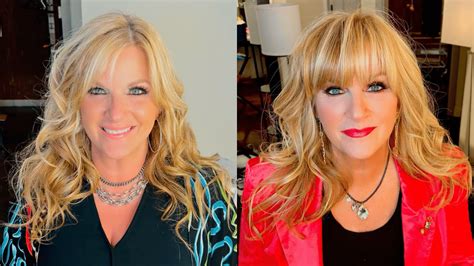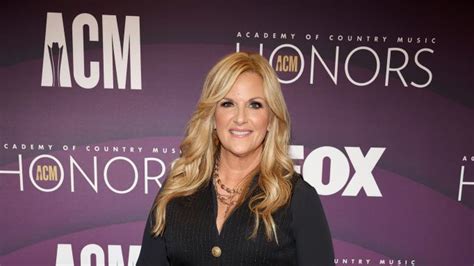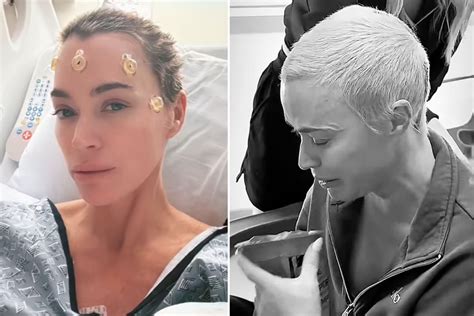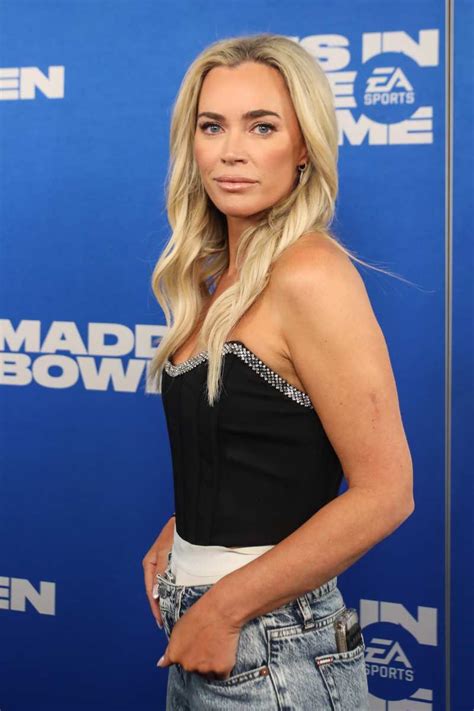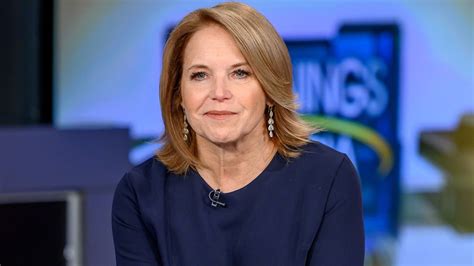
Katie Couric marked the 26th anniversary of her husband Jay Monahan’s death from colon cancer, sharing a poignant message reflecting on her enduring grief and the profound impact of his loss. In an Instagram post, Couric acknowledged the “sad day” and honored Monahan’s memory.
Katie Couric took to Instagram on Wednesday to commemorate the 26th anniversary of her husband Jay Monahan’s passing from colon cancer. The journalist and media personality shared a heartfelt tribute, reflecting on the enduring impact of his absence and the continuing waves of grief she experiences.
Couric’s message, posted alongside a picture of Monahan, acknowledged the somber milestone. “It’s June 5th. It’s the 26th anniversary of Jay’s death,” she wrote. “A lot of people have June 5th as a wedding anniversary. For me, it’s a sad day.”
Monahan, a lawyer, died in 1998 at the age of 42 after battling colon cancer. His diagnosis and subsequent death became a pivotal moment in Couric’s life, shaping her advocacy for cancer awareness and early screening.
Couric continued her reflection by noting the unexpected resurgence of grief. “I think grief is like a wave that comes and goes,” she shared. “People sometimes say, ‘Oh, you should be over it by now.’ And you think, ‘How can you ever be over it?'” She emphasized that grief is an ongoing process, and the anniversary served as a stark reminder of her loss.
The impact of Monahan’s death spurred Couric to become a prominent advocate for cancer screening and research. During her tenure on the “Today” show, she underwent a colonoscopy on-air in 2000, a move credited with significantly increasing awareness and screening rates for colon cancer, a phenomenon often referred to as the “Katie Couric Effect.”
In her post, Couric highlighted the importance of early detection, directly linking it to Monahan’s experience. “If Jay had been screened, he’d still be here,” she asserted. This statement underscores her commitment to promoting preventive healthcare measures to save lives.
Couric has consistently used her platform to advocate for cancer awareness. Her efforts include fundraising for cancer research, sharing personal stories, and encouraging others to prioritize their health through regular screenings. She also co-founded Stand Up To Cancer (SU2C), a charitable organization that supports collaborative cancer research.
Her openness about her personal experience with grief and loss has resonated with many, fostering a sense of community among those who have experienced similar tragedies. By sharing her vulnerability, Couric provides solace and encouragement to others navigating their own grief journeys.
Couric’s message not only served as a personal tribute but also as a call to action, urging individuals to prioritize their health and seek preventive screenings. Her unwavering advocacy has transformed the landscape of cancer awareness and has had a tangible impact on public health. The 26th anniversary of Monahan’s death is a stark reminder of the importance of early detection and the ongoing need for advancements in cancer research and treatment.
Expanding the Context and Details
Jay Monahan’s battle with colon cancer was relatively short but profoundly impactful. He was diagnosed with stage IV colon cancer in 1997, just a year before his death. At the time, he was a practicing lawyer and a devoted husband and father. The diagnosis came as a shock, as Monahan was relatively young and had no apparent risk factors.
The experience of navigating Monahan’s illness and eventual death had a transformative effect on Couric. In the wake of his passing, she channeled her grief into advocacy. Recognizing the lack of awareness surrounding colon cancer and the importance of early detection, she made it her mission to educate the public and promote preventive screenings.
One of Couric’s most significant contributions was her on-air colonoscopy in 2000. This unprecedented move brought the procedure into the mainstream conversation and demystified the process. The broadcast was widely credited with increasing the number of people undergoing colonoscopies, leading to earlier detection and improved outcomes.
The “Katie Couric Effect” is a testament to the power of celebrity advocacy. Her willingness to share her personal experience and use her platform to educate the public had a measurable impact on public health. The number of colonoscopies performed in the months following her on-air procedure surged, indicating a significant increase in awareness and screening rates.
Beyond her on-air colonoscopy, Couric has been involved in numerous initiatives to promote cancer awareness. She has collaborated with organizations such as the American Cancer Society and the Colon Cancer Alliance to raise funds for research and support programs. She has also used her media presence to share stories of cancer survivors and highlight the importance of early detection.
Stand Up To Cancer (SU2C), which Couric co-founded, is a collaborative initiative that brings together researchers from different institutions to accelerate the development of new cancer treatments. SU2C has funded groundbreaking research projects and has played a significant role in advancing the field of cancer research.
Couric’s advocacy extends beyond colon cancer. She has also been a vocal advocate for breast cancer awareness and has used her platform to promote screening mammograms and other preventive measures. Her commitment to cancer awareness stems from her personal experience with loss and her belief that early detection can save lives.
In addition to her advocacy work, Couric has also been open about her own health challenges. In 2022, she revealed that she had been diagnosed with breast cancer and had undergone treatment. She shared her experience to encourage others to prioritize their health and to emphasize the importance of regular screenings.
Couric’s journey through grief and advocacy has been marked by resilience and determination. She has transformed her personal tragedy into a powerful force for good, inspiring countless individuals to take control of their health and to support cancer research. Her unwavering commitment to cancer awareness has made a significant impact on public health and has saved lives.
The 26th anniversary of Jay Monahan’s death serves as a reminder of the ongoing need for advancements in cancer research and treatment. While progress has been made, cancer remains a leading cause of death worldwide. Continued investment in research and improved access to screening and treatment are essential to reducing the burden of this disease.
Couric’s message on the anniversary of Monahan’s death also underscores the importance of acknowledging and processing grief. Grief is a natural response to loss, and it is essential to allow oneself to feel and express emotions. Seeking support from friends, family, or a therapist can be helpful in navigating the grieving process.
The impact of grief can be long-lasting and can affect various aspects of one’s life. It is important to be patient with oneself and to allow time for healing. Finding healthy coping mechanisms, such as exercise, mindfulness, or creative expression, can also be beneficial.
Couric’s openness about her grief has helped to destigmatize the topic and has encouraged others to share their own experiences. By speaking candidly about her emotions, she has created a sense of community and has provided solace to those who have experienced similar losses.
In conclusion, Katie Couric’s tribute to her late husband Jay Monahan on the 26th anniversary of his death serves as a powerful reminder of the importance of cancer awareness, early detection, and grief support. Her unwavering advocacy has transformed the landscape of cancer prevention and has made a lasting impact on public health. Her message of hope and resilience continues to inspire others to prioritize their health and to support efforts to combat cancer.
Further Expansion and Analysis
The legacy of Jay Monahan extends far beyond his personal life, primarily due to Katie Couric’s relentless dedication to turning tragedy into proactive change. His death underscored the critical need for increased awareness and early detection of colon cancer, a disease that often presents with no symptoms in its early stages. This lack of early warning signs makes regular screening all the more crucial.
Colon cancer, also known as colorectal cancer, is a cancer that begins in the colon or rectum. It is the third most common cancer diagnosed in both men and women in the United States. While the incidence of colon cancer has been declining in recent years, largely due to increased screening, it remains a significant public health concern.
Risk factors for colon cancer include age, family history, inflammatory bowel disease, and certain genetic syndromes. Lifestyle factors such as diet, obesity, and smoking can also increase the risk. Screening for colon cancer typically involves colonoscopy, sigmoidoscopy, or stool-based tests.
A colonoscopy is a procedure in which a doctor uses a long, flexible tube with a camera attached to view the entire colon and rectum. Sigmoidoscopy is similar to colonoscopy but only examines the lower portion of the colon. Stool-based tests can detect blood or other abnormalities in the stool that may indicate the presence of cancer.
Early detection of colon cancer is critical because it significantly increases the chances of successful treatment. When colon cancer is detected at an early stage, it is often confined to the colon or rectum and can be removed surgically. However, if the cancer has spread to other parts of the body, treatment becomes more challenging.
The “Katie Couric Effect” had a profound impact on colon cancer screening rates. Prior to her on-air colonoscopy, many people were hesitant to undergo the procedure due to fear, embarrassment, or lack of awareness. Couric’s willingness to share her personal experience helped to break down these barriers and encouraged more people to get screened.
A study published in the journal Archives of Internal Medicine found that colonoscopy rates increased by more than 20% in the months following Couric’s on-air procedure. This increase was attributed to the “Katie Couric Effect” and demonstrated the power of celebrity advocacy in promoting public health.
Couric’s advocacy has not only increased screening rates but has also raised awareness of the importance of a healthy lifestyle in reducing the risk of colon cancer. She has consistently emphasized the importance of a diet high in fruits, vegetables, and fiber, as well as regular exercise and maintaining a healthy weight.
In addition to her work on colon cancer, Couric has also been a strong advocate for breast cancer awareness. She has shared her own experience with breast cancer to encourage others to get screened and to highlight the importance of early detection.
Breast cancer is the most common cancer diagnosed in women worldwide. Risk factors for breast cancer include age, family history, genetic mutations, and hormone replacement therapy. Screening for breast cancer typically involves mammography, which is an X-ray of the breast.
Early detection of breast cancer is critical because it significantly increases the chances of successful treatment. When breast cancer is detected at an early stage, it is often confined to the breast and can be treated with surgery, radiation, chemotherapy, or hormone therapy. However, if the cancer has spread to other parts of the body, treatment becomes more challenging.
Couric’s advocacy has helped to raise awareness of the importance of mammography and has encouraged more women to get screened. She has also been a vocal advocate for research into new and improved methods of breast cancer screening and treatment.
Stand Up To Cancer (SU2C), which Couric co-founded, has played a significant role in advancing cancer research. SU2C brings together researchers from different institutions to collaborate on groundbreaking research projects. SU2C has funded research into new cancer treatments, diagnostic tools, and prevention strategies.
SU2C has also been instrumental in promoting diversity in cancer research. The organization has made a concerted effort to fund research projects that address the unique needs of underserved communities. This is important because cancer disparities exist across different racial and ethnic groups.
Couric’s commitment to cancer awareness extends beyond her advocacy work and her involvement with SU2C. She has also written and spoken extensively about her personal experiences with cancer, both as a caregiver and as a patient. Her willingness to share her story has helped to destigmatize cancer and has provided comfort and support to countless individuals.
The 26th anniversary of Jay Monahan’s death serves as a reminder of the ongoing need for progress in the fight against cancer. While significant strides have been made in recent years, cancer remains a leading cause of death worldwide. Continued investment in research, improved access to screening and treatment, and increased awareness of prevention strategies are essential to reducing the burden of this disease.
Katie Couric’s unwavering commitment to cancer awareness has made a lasting impact on public health. Her advocacy has saved lives, inspired hope, and transformed the landscape of cancer prevention. Her message of hope and resilience continues to resonate with people around the world.
The Personal Impact and Emotional Journey
Beyond the statistics and the public health initiatives, Katie Couric’s journey is deeply personal and profoundly emotional. Losing her husband at a relatively young age had a seismic impact on her life, reshaping her priorities and driving her to become a vocal advocate for cancer awareness and early detection. The grief she experienced was not a linear process, and as she eloquently stated in her recent Instagram post, it continues to ebb and flow even after 26 years.
The public often sees the polished and composed media personality, but behind the camera, Couric has navigated the complexities of grief, single parenthood, and the pressure of maintaining a high-profile career. Her vulnerability in sharing her experiences has resonated with many who have faced similar losses, creating a sense of connection and community.
The decision to undergo a colonoscopy on national television was a bold and unprecedented move, one that required courage and a deep commitment to her cause. She understood the potential for embarrassment or criticism, but she was driven by the belief that her actions could save lives. The subsequent surge in colonoscopy rates proved that her efforts were successful, validating her decision to use her platform for good.
Couric’s advocacy extends beyond colon cancer to other health issues, including breast cancer, which she herself was diagnosed with in 2022. Her openness about her diagnosis and treatment further solidified her role as a trusted voice in the realm of health and wellness. She used her experience to educate others about the importance of early detection and to dispel myths and misconceptions about the disease.
Her work with Stand Up To Cancer (SU2C) reflects her commitment to collaborative research and innovation in the fight against cancer. SU2C brings together scientists from different disciplines to work together on developing new and more effective treatments. This collaborative approach is essential for making progress against a disease as complex and multifaceted as cancer.
The 26th anniversary of Jay Monahan’s death is not just a date on the calendar for Katie Couric; it is a reminder of the profound loss she experienced and the ongoing need for vigilance in the fight against cancer. Her message on Instagram was a poignant expression of grief, but it was also a call to action, urging individuals to prioritize their health and to support cancer research.
The impact of her advocacy is undeniable. She has saved lives, raised awareness, and inspired countless individuals to take control of their health. Her legacy will continue to grow as she remains a tireless champion for cancer awareness and early detection. Her story serves as a powerful reminder that even in the face of tragedy, it is possible to find meaning and purpose, and to make a difference in the world.
Couric’s ability to balance her personal grief with her public advocacy is a testament to her strength and resilience. She has transformed her personal tragedy into a powerful force for good, inspiring others to take action and to support the fight against cancer. Her unwavering commitment to this cause has made a lasting impact on public health and has saved countless lives.
Frequently Asked Questions (FAQ)
1. What was the cause of Jay Monahan’s death? Jay Monahan died from colon cancer on June 5, 1998. He was diagnosed with stage IV colon cancer a year prior.
2. What is the “Katie Couric Effect”? The “Katie Couric Effect” refers to the significant increase in colonoscopy screenings following Katie Couric’s on-air colonoscopy in 2000. Her public demonstration raised awareness and encouraged more people to get screened for colon cancer.
3. What is Stand Up To Cancer (SU2C)? Stand Up To Cancer (SU2C) is a charitable organization co-founded by Katie Couric that supports collaborative cancer research. It brings together scientists from different institutions to accelerate the development of new cancer treatments.
4. What did Katie Couric say in her Instagram post marking the anniversary of her husband’s death? In her Instagram post, Couric acknowledged the “sad day” marking the 26th anniversary of Jay Monahan’s death. She reflected on the enduring grief she experiences and emphasized the importance of early cancer screening, stating, “If Jay had been screened, he’d still be here.”
5. How has Katie Couric advocated for cancer awareness? Katie Couric has advocated for cancer awareness through various means, including undergoing an on-air colonoscopy, co-founding Stand Up To Cancer (SU2C), sharing personal stories, fundraising for cancer research, and encouraging others to prioritize their health through regular screenings. She also publicly shared her experience with breast cancer to promote early detection.






